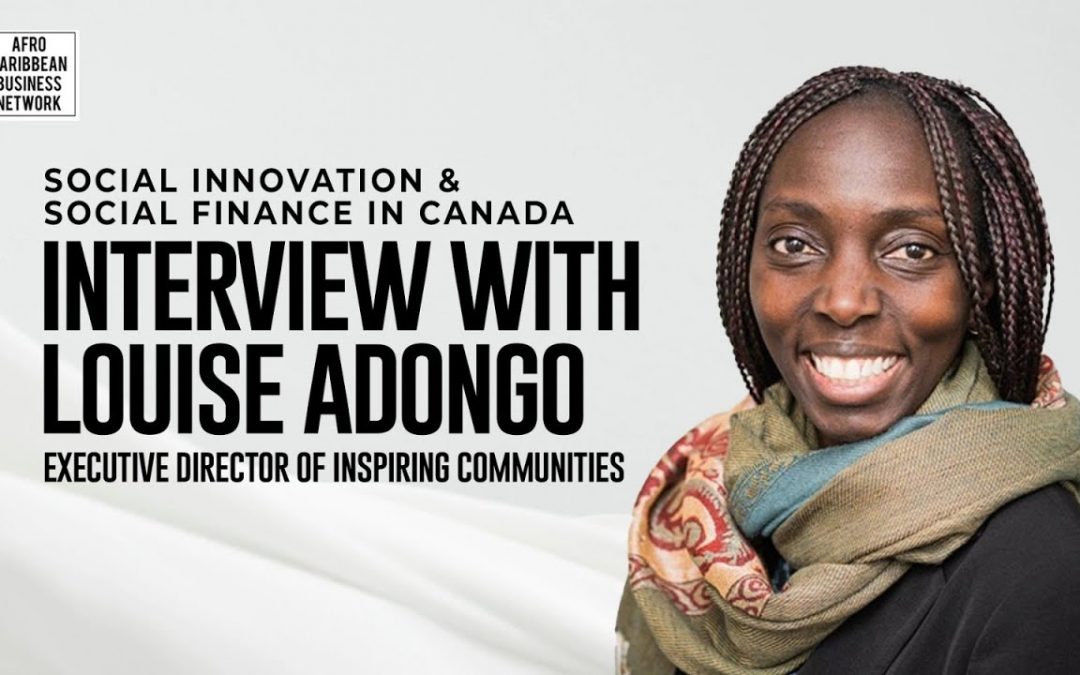At ACBN, we believe in the proverb I am because we are. That philosophy drives our commitment to mobilizing ecosystems through shared knowledge and collaboration.
We recently sat down with Louise Adongo, Executive Director of Inspire Communities in Nova Scotia, to discuss the future of social innovation in Canada and what it means for entrepreneurs, leaders, and community builders. Louise brings a rare combination of science, bureaucracy, and grassroots experience, grounded in a lifelong commitment to social justice.
Her insights remind us that if we want to change systems, we must cut through jargon, embrace mutuality, and design funding models that truly serve communities.
1. Demystify the jargon, embrace mutuality
The world of social finance and social innovation often hides behind complicated terms. Louise stresses that at its core, these concepts are simple—and rooted in practices we already know.
Think of susu’s or roscas—community members pooling money, holding each other accountable, and circulating funds for mutual benefit. That is the essence of social finance.
Key takeaway for entrepreneurs: Don’t let jargon exclude you. Break it down, simplify your own language, and design programs that feel accessible to the people they’re meant to serve.
2. Resourcing for transformational change
Louise points out that traditional funding models often prioritize speed and numbers over depth and equity. True systemic change requires multi-year, flexible resources that measure success differently.
Advocate for upfront capital instead of reimbursement-based funding.
Push for metrics that value quality of participation, not just outputs.
Treat social purpose work with the same respect and financing as private-sector work.
Lesson for business owners: Secure funding that gives you room to create lasting impact, not just short-term activity.
3. The challenge of leadership for Black executives
As a Black executive director in a non-B3 organization, Louise highlights the barriers Black leaders face. Often, they are placed on “glass cliffs”—expected to succeed in difficult roles while funding support is pulled back.
Takeaway for entrepreneurs and boards: Support BIPOC leaders beyond optics. Leadership transitions require resourcing, mentoring, and board-level commitment to ensure leaders are set up for success.
4. Multi-solving for community needs
Equity and climate justice are deeply interconnected. Louise calls on us to stop fragmenting issues and instead adopt multi-solving approaches that address immediate needs like food, housing, and mental health while advancing larger goals like climate resilience.
Tip for innovators: Bring experts into community conversations, not the other way around. Real change happens when solutions meet people where they are.
5. A call to action: revive cooperatives and mutuals
Louise’s final message is clear: cooperatives and mutuals are powerful vehicles we’ve allowed to fade from the narrative. They are proven tools for survival, ownership, and collective wealth.
Her advice: Don’t wait until the crisis hits. Learn these models now and bring them back into your networks, businesses, and families as strategies for long-term prosperity.
Conclusion: Building the future of social innovation in Canada
Louise Adongo’s wisdom reminds us that social innovation in Canada doesn’t need more jargon—it needs clarity, mutuality, and courage. For Black entrepreneurs, embracing these principles means building stronger businesses while also shaping systems that work for us all.
Watch the full interview with Louise Adongo here: Watch on YouTube
Learn about our ACBN Membership so we can work with you to build your business: ACBN Membership




